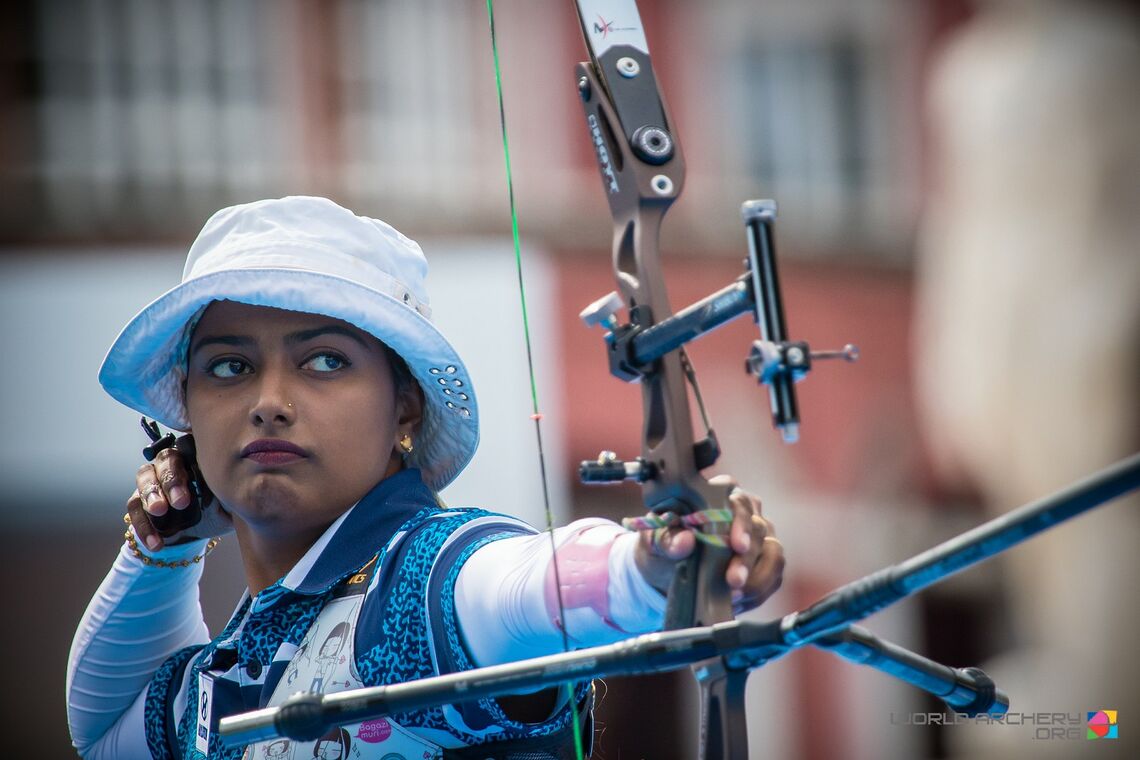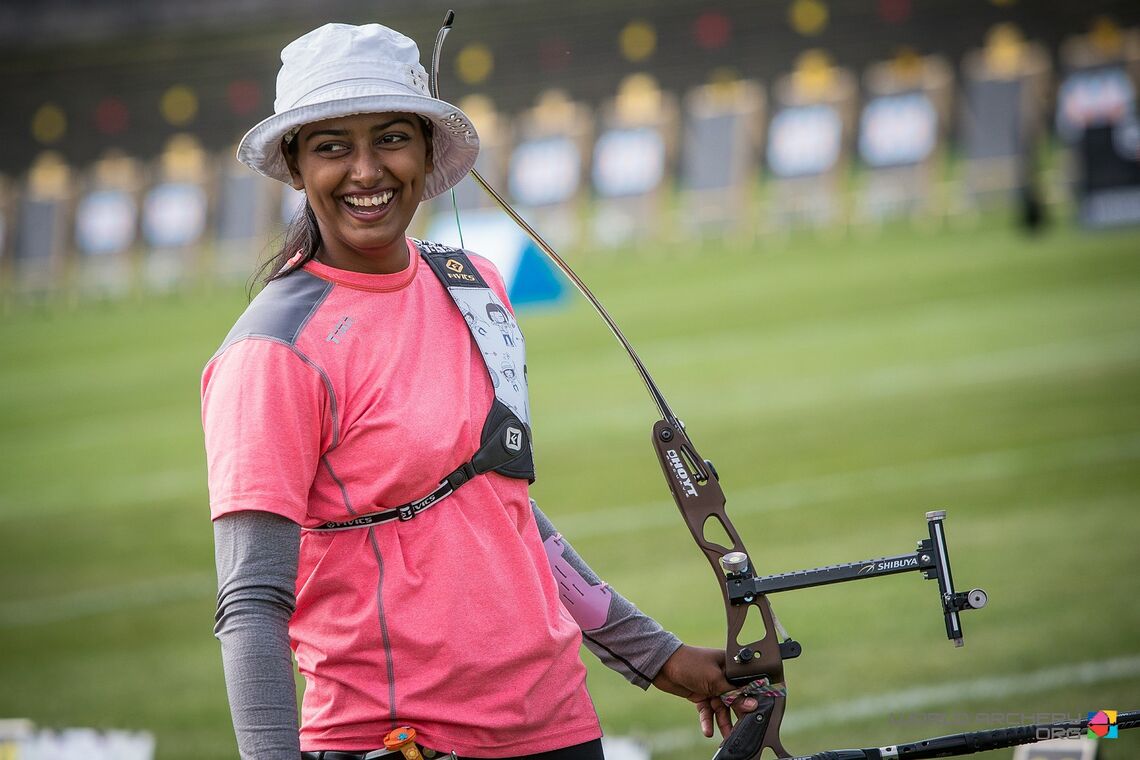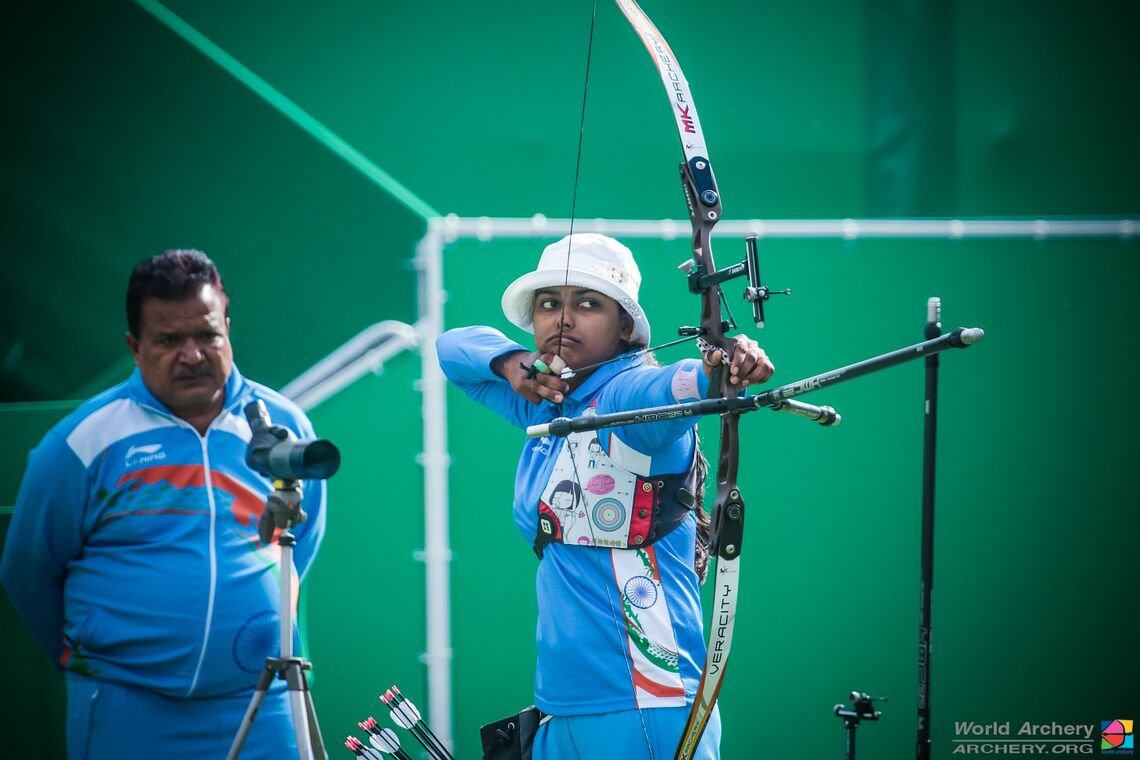Reviewed: Ladies First documentary featuring Deepika Kumari
A long-awaited documentary about Deepika Kumari was released to Netflix worldwide on 8 March 2018, International Women’s Day. Made by Uraaz Bahl and Shaana Levy-Bahl, who started shooting just a few weeks before the Rio 2016 Olympic Games, it gives the most detailed insight yet into Deepika’s career.
Kumari, apparently reluctant at first, eventually grew to trust the filmmakers enough to open up further than ever before.
“The story is about fighting,” Levy-Bahl said to Vogue India last week. “Sports gives girls a sense of worth and confidence.”
Ladies First is already having an effect – apparently, after watching the documentary, Maneka Gandhi, the Indian minister of Women’s Affairs and Child Development, pledged to set up a fund to support Deepika’s training and to support other female athletes.
Just 40 minutes long, it’s a short, but beautifully-filmed piece which uses Rio as a frame to take the audience through Deepika’s remarkable career so far.

The often-repeated soundbite that she ‘was born on the roadside’ is illustrated, showing the grinding, violent poverty in rural Jharkand, where Kumari grew up in a mud house with no running water, and often had to steal vegetables from the local fields for food.
It turns out that her first visit in 2006 to the Seraikella archery academy that developed her talent as a junior was motivated more by wanting to lessen the burden on her parents rather than an interest in archery.
“I thought if I left home, there would be more money… At first, I didn’t even know it was a sport,” she says.
The film’s real focus is the incredible difficulties that young women face, especially in developing countries, trying to break out of the expectations that a patriarchal culture sets for them.

India recently ranked bottom in a recent survey of G20 countries of ‘the best place to be a woman’. Almost 45 percent of Indian girls are married before they turn 18, and there is a particularly deep antipathy to women taking up any kind of sport.
It also graphically shows the remarkable discrepancies within Indian Olympic sport, with the women’s archery team making the 32 hour journey to Rio in economy, while some officials travelled business class.
Despite a distinct lack of resources compared to many other nations, there is a constant demand for medals, not helped by the astonishing pressure heaped upon sportspeople by the Indian media.
The film includes a notorious incident in 2013 with Kumari and her teammates, fresh from a Hyundai Archery World Cup victory, being harassed to the point of tears by TV crews at Delhi airport.

It also closes on Kumari’s increasing role model status, especially among young Indian athletes, and you sense that she is growing further into this role. Her archery career may have many surprises yet to come, but as the film shows, she has become an icon of what is possible.
She says: “I hope girls in India who face many obstacles look at me for inspiration to rise above their problems, and fight to follow their dreams, to pursue their ambitions.”
You can watch Ladies First from anywhere in the world with a Netflix subscription – and I’d recommend taking the time to do just that, if you can.
The documentary may automatically default to an American English voiceover, and I’d turn this off and listen to the original Hindi soundtrack with English subtitles (or any of the other 25 languages).
Ladies First is available worldwide for streaming via Netflix from 8 March 2018.










